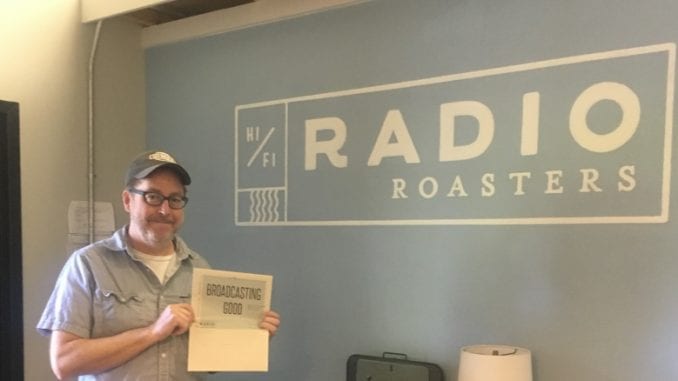
Hailing from the West Coast, Chip Grabow of Radio Roasters is bringing his love for coffee to Atlanta in a unique way.
BY LL PRUITT
SPECIAL TO BARISTA MAGAZINE
Though specialty coffee is growing in Atlanta, it is still quite small compared to the West Coast. After living in Portland, Ore., and Los Angeles, Chip Grabow noticed the lack of specialty coffee in Atlanta and saw a niche that could be filled. Though Chip’s background is in news media, he has taken his love for coffee and grown it into a business that Atlanta loves.
Chip started Radio Roasters out of a genuine love for coffee. As Radio’s sole owner, Chip has bootstrapped the business since its inception, roasting coffee that is delivered directly to coffee drinkers’ homes, and operating the Barista Capsule, a mobile coffee cart providing coffee during events to the Atlanta community.
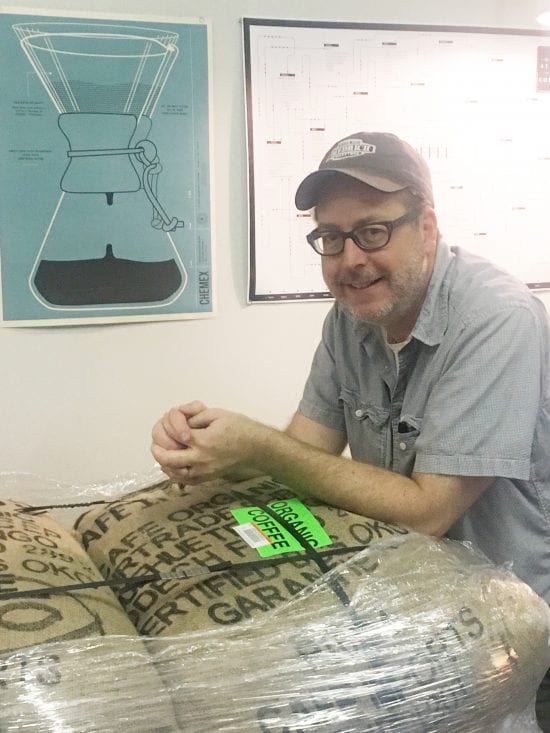
LL Pruitt: When did you start Radio Roasters?
Chip Grabow: Three-and-a-half years ago; we’ve been in this building about two-and-a-half years.
LP: What would you say is your mission?
CG: Part of our mission is getting really good specialty coffee delivered to people and making them aware of how that makes a big difference. I love coffee so much, and I love educating and informing—that’s sort of pushing that point home. I think once people try us, they see it’s amazing.
LP: Are you the sole owner?
CG: Yes, it’s just me, and I have a day job at CNN that’s 45 hours a week
LP: With so much going on in your daily life, how do you make this work?
CG: I’ve been squeezing this in on the side and trying to grow it. It’s slower than I’d like it to be, but that’s the nature of the way I’m doing it. Someday I might look for partners, but right now it’s just me.
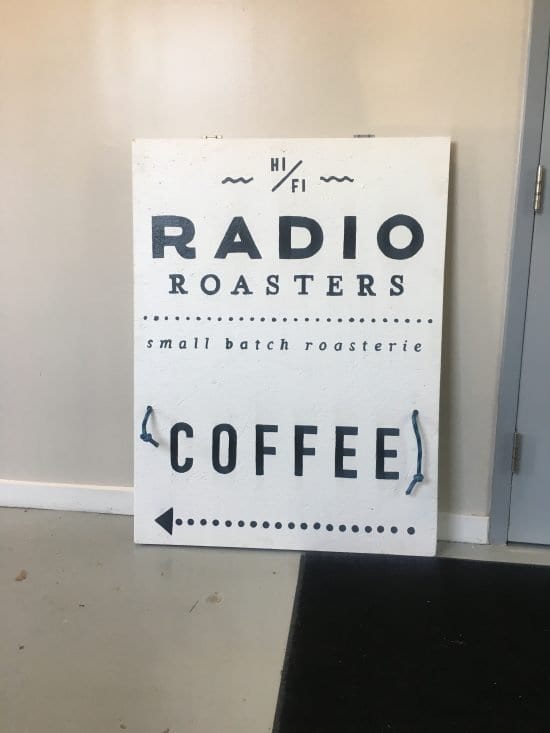
I have friends who roast coffee and friends in the restaurant world, and I’ve been in the news business for 25 years—first with NPR, now at CNN. But you get like anybody who’s been in a career for a while and you think, “I wish I’d done this other thing, or maybe I can transition to something else.” I’d always been fascinated with the culinary world because I love cooking and I love flavors, and everybody likes good food. But at the time it wasn’t practical.
Then I had friends who roast, and I’ve always loved coffee. There was a friend who had a roaster in his backyard; he made me realize that it was doable. There was something that just clicked. I’ve always loved coffee, and I’ve always had that experience of going to different coffee shops and just like loving a cup from one place, and then going somewhere else and not being satisfied, and wondering why that is. Isn’t coffee just coffee? And once I started learning about it, I realized there are so many different variables.
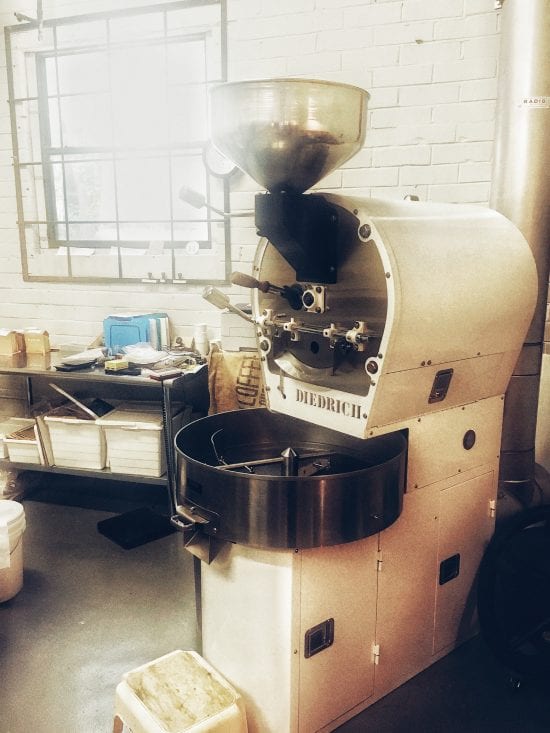
LP: Who do you work with to get your coffee?
CG: We sample a lot of different coffees; we work with an importer—we’re too small to work with direct trade. At some point we’d like to have that direct relationship with the farmers. It’s just complicated. So we sample and cup a lot of coffees to put in our lineup.
LP: What types of coffee do you order?
CG: We get fresh-crop coffee, so our lineup is always changing. We’re focused on single-origin coffee from one region or one farm. We are small enough that we can keep rotating. There are different seasons, different harvests, different years. It will always change. It’s a seasonal product. That goes back to getting people to realize that it’s always changing. We like to source different things and change the lineup.
LP: How did you come up with the name “Radio Roasters?”
CG: It’s simply because I was a radio producer at NPR for 15 years, in Washington [D.C.], then L.A. I liked the sound of it.
LP: How did the Barista Capsule come about?
CG: It is a way for us to get our name out there and get into more events. It’s a mobile coffee bar, although it’s not as mobile as I’d like it to be. It gave us two things: an instant bar, and because it’s portable, we can go out and do events with it.
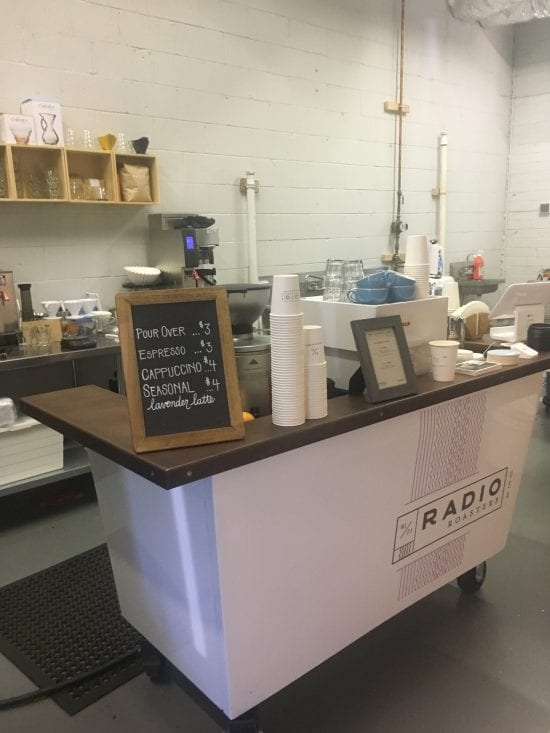
LP: What else do subscribers receiver with their coffee subscription?
CG: We wanted to do a brochure, a mailer— something to enclose with shipments. There’s a brew guide, with instructions on how to brew good coffee at home. That’s part of our big mission too, in terms of education. It’s helping people realize you can brew really good coffee at home. You don’t have to go out and spend $4 at a cafe. That’s a different experience, but it’s possible to brew good coffee at home if you start with good beans and use the brew guide instructions.
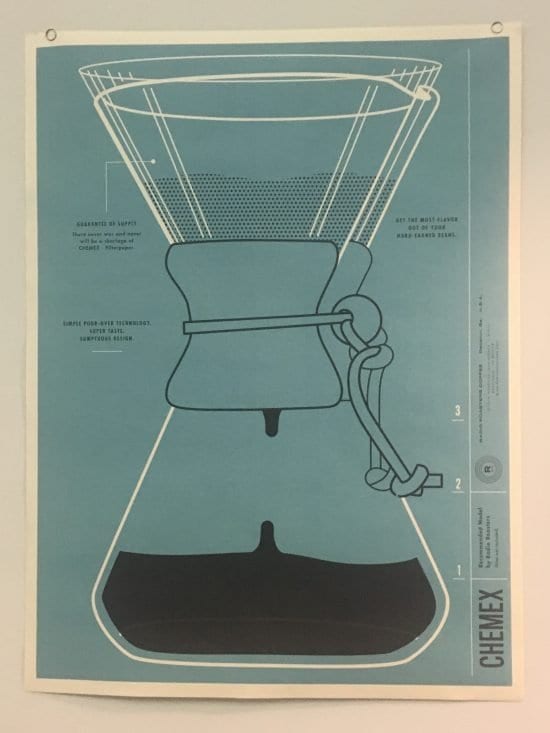
LP: What type of outreach have you done in the community?
CG: Getting into more shops; SQ/FT in the Square here and in Decatur sells our coffee. I’ve had so many people say, “I saw your coffee at SQ/FT,” and that’s how they discover us. Ebrik Coffee Room, also in Decatur, uses our coffee. Cafe & Velo carries our coffee … and it’s at events like the Decatur Book Festival. We also roast coffee for Grounds for Empowerment; they work with women coffee growers in Nicaragua to help them grow their business.
 ABOUT THE AUTHOR
ABOUT THE AUTHOR
L.L. Pruitt is a freelance writer and barista sharing and expanding coffee in Atlanta, which you can see through her Instagram @coffeeatlanta.

